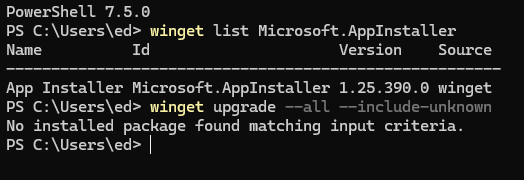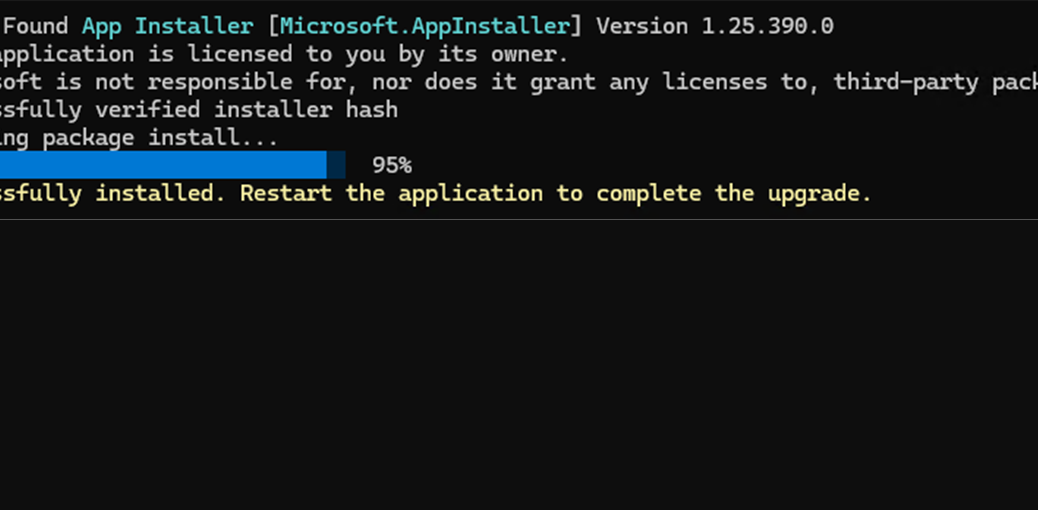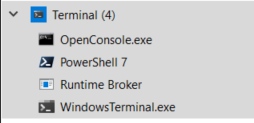I found myself asking the query posed in this blog post title after updating WinGet (aka Microsoft.AppInstaller) inside Windows Terminal this morning. Why? Because a routine WinGet Upgrade fielded an update to its own self (see lead-in graphic). Then it advised in yellow to “Restart the application to complete the upgrade” as shown. I did so, but it didn’t help. Indeed the upgraded version (see next screencap) didn’t appear in Windows Terminal until I rebooted the test PC. That’s why I pose the query: “Can restart application mean reboot the PC?” Mebbe so…

Why Say: Can Restart Application Mean Reboot?
I raise the question because restarting Windows Terminal did not advance the version for Microsoft.AppInstaller from 1.25.340.0 to 1.25.390.0. But a reboot of the test PC, and a subsequent check of that app’s version number did produce the desired result (see above). What else should I wonder after such a turn of events?
Just to make sure I checked the App info for Windows Terminal after running WinGet to see if it somehow stays active after it’s been run. Nope: here’s what I see:
No evidence of lingering WinGet/MSAppInstaller here.
For the moment it looks like the WinGet team has fixed the issue with strange self-update behavior. It now sends a message to restart the application instead as shown at the head of this blog post. The only way I could switch from the old to the new version was through a reboot, though. I’ll have to ask Demitrius Nelon if that’s the way it’s really supposed to work. Stay tuned!

